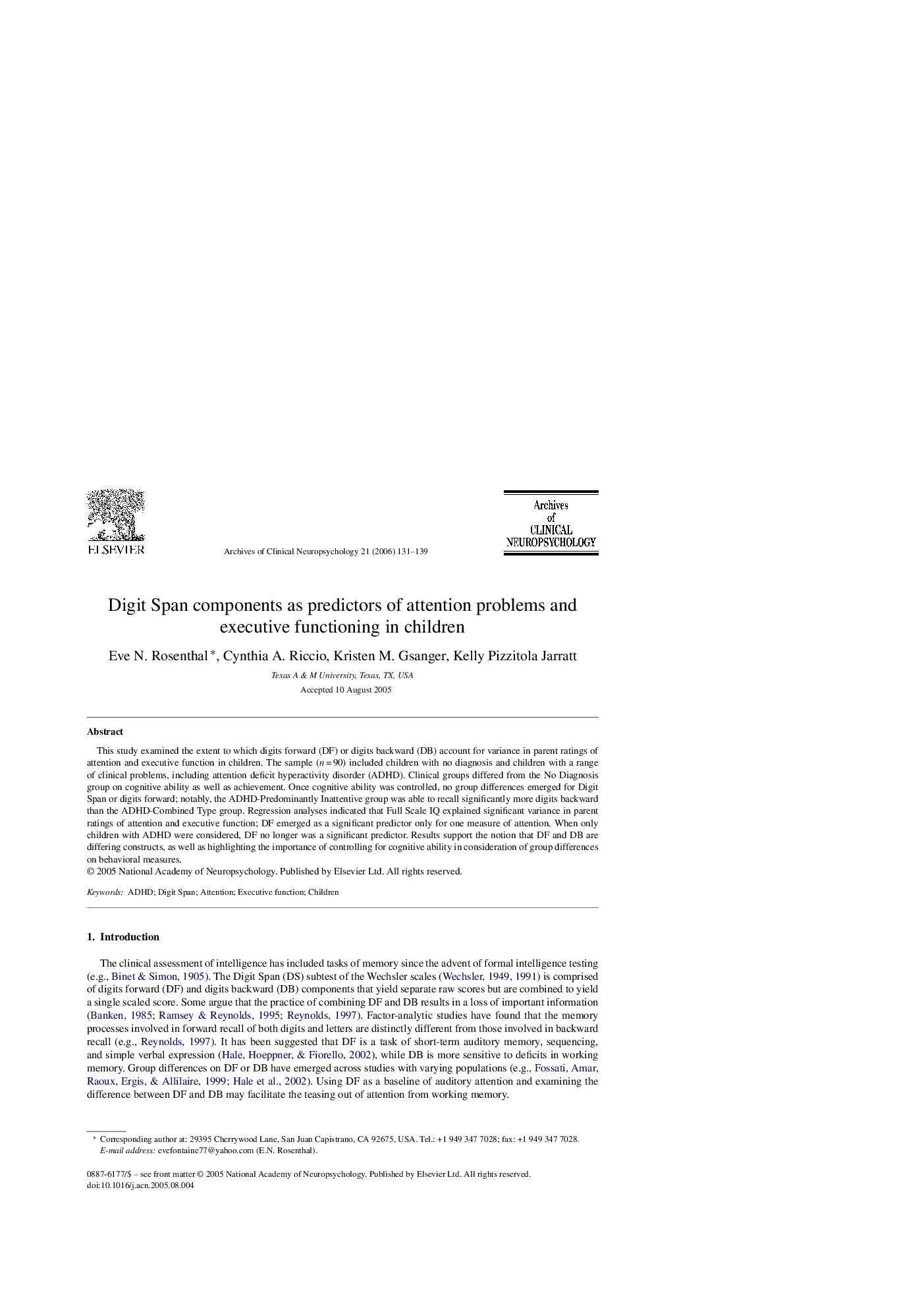| Article ID | Journal | Published Year | Pages | File Type |
|---|---|---|---|---|
| 901102 | Archives of Clinical Neuropsychology | 2006 | 9 Pages |
This study examined the extent to which digits forward (DF) or digits backward (DB) account for variance in parent ratings of attention and executive function in children. The sample (n = 90) included children with no diagnosis and children with a range of clinical problems, including attention deficit hyperactivity disorder (ADHD). Clinical groups differed from the No Diagnosis group on cognitive ability as well as achievement. Once cognitive ability was controlled, no group differences emerged for Digit Span or digits forward; notably, the ADHD-Predominantly Inattentive group was able to recall significantly more digits backward than the ADHD-Combined Type group. Regression analyses indicated that Full Scale IQ explained significant variance in parent ratings of attention and executive function; DF emerged as a significant predictor only for one measure of attention. When only children with ADHD were considered, DF no longer was a significant predictor. Results support the notion that DF and DB are differing constructs, as well as highlighting the importance of controlling for cognitive ability in consideration of group differences on behavioral measures.
